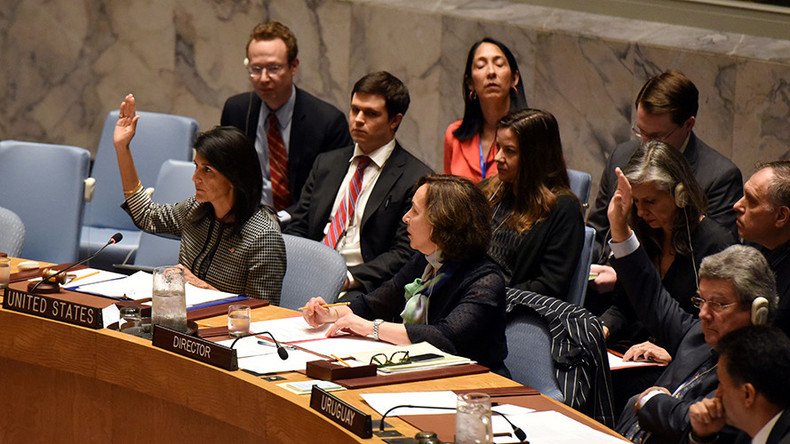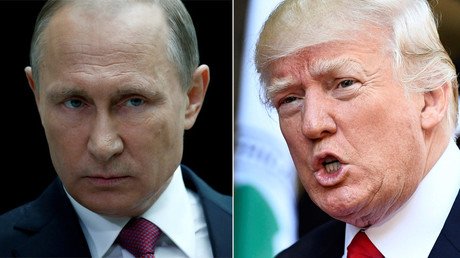Legal blackmail? Congress considers withholding support for countries opposing US position at UN

US lawmakers want to legally prohibit any financial and military assistance to countries opposing Washington's foreign policy. A bill advocating such course of action based on a certain country's "behavior" at the UN has been introduced by Republican Congressmen.
The "United Nations Voting Accountability Act of 2017" has been put forward by Louie Gohmert (R-TX) and Steve King (R-IA) and referred to the House Committee on Foreign Affairs. The lawmakers want to legally "prohibit United States assistance to foreign countries that oppose the position of the United States at the United Nations."
Any "monetary or physical assistance" including economic support and military cooperation should be suspended for those international players that consistently vote against the US in the UN Security Council and the General Assembly, the document states. If a UN member state’s position is not the same as Washington's in more than 50 percent of the recorded voting, it should be considered an "opposed" country.
Once there is "a fundamental change in the leadership and policies of the government of a country" that has been deprived of US support due to its voting practices, the assistance might be renewed, the bill adds. Another exclusion example would be the president's decision to delete a country from the "prohibition" list based on US national security interests. However, even in this case, a US leader should explain the motivation to Congress.
The US State Department has been annually submitting a report on voting practices in the UN starting from 1984, claiming that "a country's behavior at the United Nations is always relevant to its bilateral relationship." The latest report, for instance, shows that based on overall voting in the General Assembly in 2015, North Korea, Syria, Iran and Cuba have a lower percentage of "voting coincidence with the US": 11.1, 16.7, 18.6 and 26.4 respectively.
On the other hand, those states who are highly unlikely to be deprived of US assistance, are Israel (94.3 percent of the voting coincidence), Canada (92.2) and Ukraine (76.5). Russian and American positions in the 2015 General Assembly coincided in 40.3 percent of the plenary votes.
READ MORE: US quits UNESCO: ‘Israel setting agenda for Trump, Trump falls into line’
While Washington has never expressed willingness to cooperate with countries that do not support its stance on international issues, the new document is worrying as it aims to secure such an approach legislatively, an expert on international humanitarian and political relations told RT Russian. The bill also targets those governments that financially depend on the US, but are trying to push their own foreign policy.
It is a "warning" to such countries as Egypt, Philippines, Argentina, Brazil and Mexico, Vladimir Bruter said. He added, "While Russia or Syria have long understood how to best deal with Washington, [those countries] might face problems."













